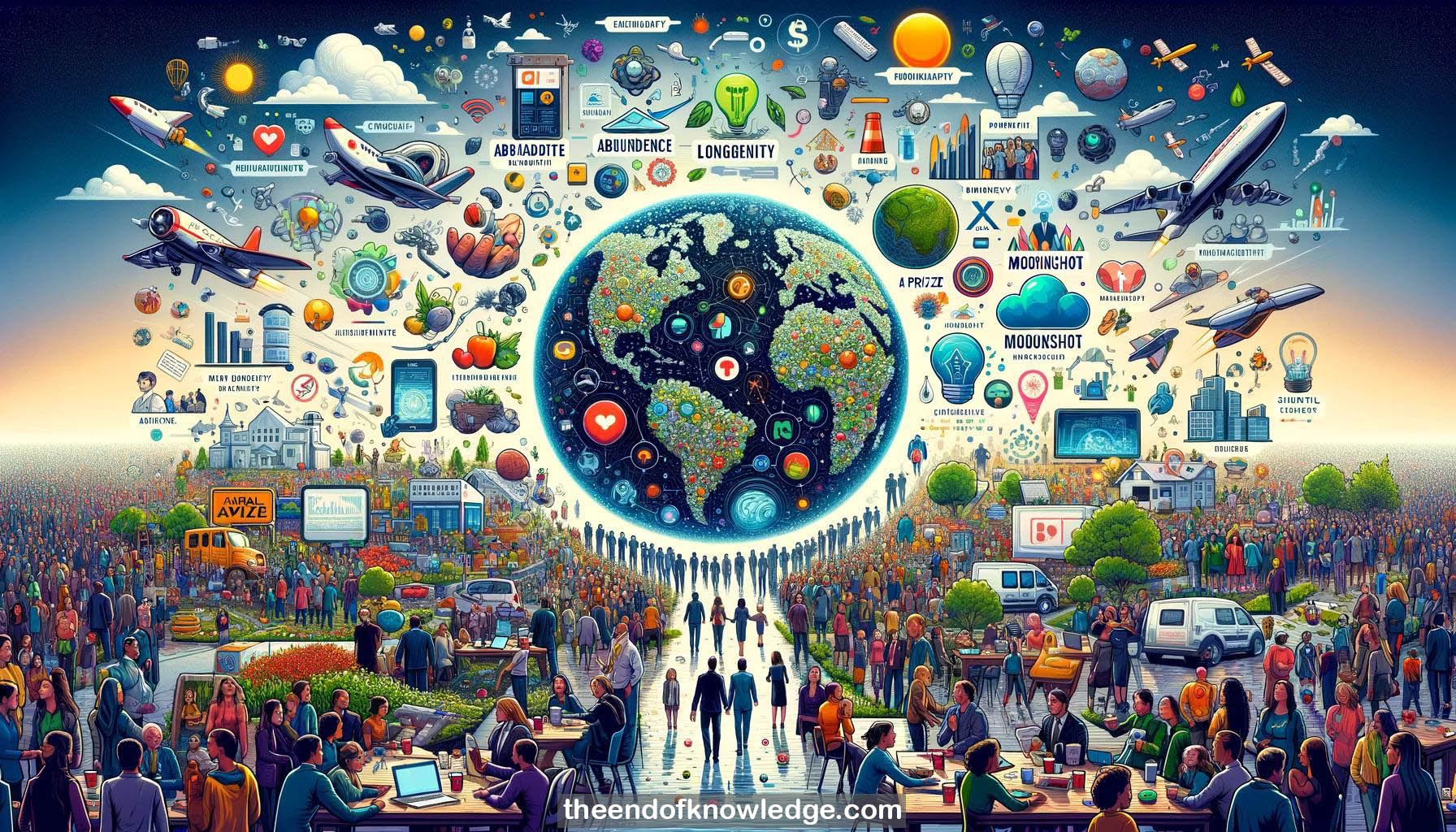 >
>
Concept Graph & Resume using Claude 3 Opus | Chat GPT4o | Llama 3:
Resume:
1.- Frederick introduced the AI for Good Global Summit organized by ITU, XPRIZE, UN organizations, ACM, and co-convened with Switzerland.
2.- The summit aims to identify practical AI applications to advance the SDGs and scale solutions for global impact.
3.- Breakthrough tracks connected AI innovators with problem owners to generate AI for Good projects over the past 10 days.
4.- Magician Simon Pierro performed a special show as a reward for the hard work over the 10 days.
5.- Amir Banifatemi of XPRIZE moderated the last day focused on the global impact of AI on humanity and society.
6.- Peter Diamandis gave the keynote on building a world of abundance with AI for Good.
7.- Diamandis emphasized the importance of mindset, including abundance, exponential, longevity, purpose-driven, moonshot, and gratitude mindsets.
8.- He believes there is no problem that can't be solved and we can turn scarcity into abundance through technology.
9.- AI is a key enabling force to abundantly meet humanity's needs in areas like healthcare, education, water, food, and housing.
10.- Small passionate teams pursuing their massively transformative purpose can solve the world's biggest problems.
11.- XPRIZE is exploring an annual global visioneering process to crowdsource solutions to urgent threats not being addressed.
12.- Caroline Kolta introduced the breakthroughs on the future of food and food revolution track.
13.- Nigyar Makhmudova from Danone discussed the importance of food systems and how tech and AI are enabling resilient solutions.
14.- The pandemic was a wake-up call to redesign food systems to coexist with nature while meeting nutritional needs.
15.- Danone's "One Planet. One Health" framework emphasizes consumer food choices impact the world we live in.
16.- AI enables personalized nutrition, alternative proteins, regenerative agriculture and other solutions to transform food systems.
17.- XPRIZE and Danone announced a collaboration to launch a series of AI challenges for circular food systems.
18.- Three core principles will guide the challenges - inclusive/equitable, nourishing/desirable, and regenerative/resilient. Collaboration is critical for systemic change.
19.- Andrew Tatarsky summarized the collective pandemic intelligence track which surfaced common issues around data access, sharing, privacy and interoperability.
20.- AI has significant potential to empower public health decision-making and inform individual well-being in pandemics.
21.- Microsoft's Vikas Bhatia discussed Azure confidential computing to enable privacy-preserving data sharing and collaboration for AI solutions development.
22.- XPRIZE announced the upcoming launch of an AI and Data for Good Alliance to cultivate tangible solutions through data and AI.
23.- Anousheh Ansari discussed the gender breakthrough track and the historical lack of diversity and inclusion in data used for AI.
24.- She announced the GenderNet initiative to create the most comprehensive, diverse, unbiased and ethically-sourced datasets to eliminate gender bias in AI.
25.- Caroline Criado Perez emphasized the dangers of the gender data gap getting baked into and amplified by AI systems.
26.- Riane Eisler advocated for a new "partnership system" framework of gender conceptualization so both men and women can be fully human.
27.- Francesca Rossi highlighted the need for gender fairness benchmarks and tools to detect and mitigate gender bias throughout AI development.
28.- Reinhard Scholl of ITU expressed support for the GenderNet initiative and offered to contribute ITU's network and expertise to the effort.
29.- The AI for Good platform has grown into extensive year-round programming including webinars, challenges, startup pitches and artistic explorations.
30.- Collaboration and shared sense of purpose are key to ensure AI benefits all of humanity as we emerge from the pandemic.
Knowledge Vault built byDavid Vivancos 2024